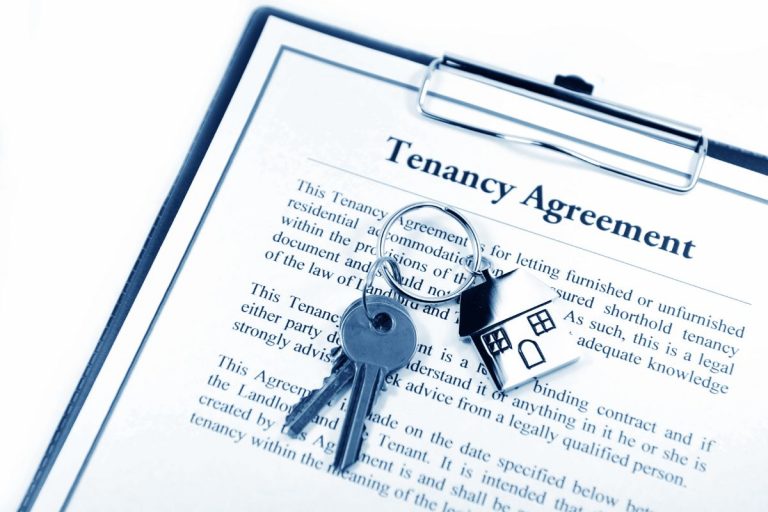A tenancy contract is the single most significant tool for regulating the rental property market in Dubai. Understanding rental contracts in Dubai, as well as the rights and duties that come with them, will help you avoid misunderstandings, mistakes, and potential ramifications as a landlord or tenant in Dubai. Thefindandgo has collected the comprehensive guide to tenancy contracts so you know exactly what you’re getting into when you sign the rental agreement in Dubai.
WHAT IS A DUBAI TENANCY CONTRACT?
WHERE CAN I GET A TENANCY CONTRACT IN DUBAI?
The basic rental contract in Dubai may be obtained from the official website of the Dubai Land Department. The tenancy contract may be downloaded by landlords and tenants through the Dubai REST app.
This tenancy contract form is completely customizable and accessible in both Arabic and English. Landlords and renters have the ability to add or change any unique conditions they choose to put in their rental agreement.
The basic tenancy contract in Dubai includes the following provisions:
- governing laws
- Landlord’s Obligations
- The tenant’s obligations
- Terms and conditions of the contract
- Registration for Ejari
WHAT ARE DUBAI'S TENANCY LAWS?

The Dubai Rental Law No. 26 of 2007 and the consequent relationship between renters and landlords are governed by the Dubai Rental Law No. 33 of 2008. (2008). These laws govern the rights and responsibilities of landlords and renters in Dubai.
The provisions of Decree No. 43 of 2013 govern all aspects of rising property rents in Dubai. The Rent Problems Settlement Centre, established by Decree No. 26 of 2013, is in charge of resolving rental disputes through arbitration or the courts.
RERA employs the Ejari system to guarantee accurate registration and monitoring of rental contracts in the emirate. To formalize their rental agreement in a government-approved format, all landlords and renters in Dubai must register their tenancy agreements with Ejari.
TENANTS' AND LANDLORDS' RIGHTS AND OBLIGATIONS IN DUBAI
When it comes to rights and duties, Dubai’s RERA tenancy laws establish clear guidelines that regulate the tenant-landlord relationship. The distribution of responsibility is apparent, and it goes without saying that the rights of one party become the obligations of the other.
WHAT ARE THE RIGHTS OF TENANTS IN DUBAI?
For the time being, let us examine the rights of tenants in Dubai.
- The tenant is entitled to obtain a property that is in excellent shape and comfortable to live in.
- Unless otherwise specified in the contract, all repair and restoration of property to make it pleasantly living should be handled by the landlord.
- The tenant has complete access to the property. The landlord is not permitted to make any alterations that might interfere with the tenant’s planned use of the property.
- Even if the property is sold to a new owner during the length of the tenant’s tenancy contract, the tenant is legally entitled to reside there.
- The tenant has the right to contest an unreasonable rent increase that does not comply with RERA’s Rent Increase Calculator.
WHAT ARE THE RIGHTS OF THE LANDLORD IN DUBAI?
The Real Estate Regulatory Agency (RERA) property rules in Dubai also clarify landlords’ rights under a tenancy contract.
- Landlords are entitled to receive the agreed-upon rent amount on the due date.
- The landlord may take a security deposit as insurance against property damage, provided that it is reimbursed in part or in full at the conclusion of the contractual period.
- The renter may not renovate or redecorate the property without the landlord’s approval.
- When the tenancy contract expires, the landlord is entitled to receive the property in the same condition in which it was turned over to the tenant.
- Landlords have the right to keep any leasehold improvements that the tenant makes.
- Unless otherwise agreed, the tenant is responsible for all property costs, taxes, and government-imposed fees.
Whether you are a landlord or a tenant, you must register Ejari online for your tenancy contract. Ejari makes the contract legally binding and streamlines the dispute resolution procedure if necessary. To register Ejari, you must first complete up the “consolidated leasing contract,” often known as the tenancy contract in Dubai.
WHAT ARE THE KEY TENANCY CONTRACT CLAUSES TO KEEP IN MIND?

While the contracting parties are able to add their own contractual conditions, several crucial tenancy clauses are already included.
An addition to the regular contract might be attached by the parties. The addendum must list and explain all of the terms and conditions of the rental agreement. This includes, but is not restricted to:
- Who covers which services?
- What circumstances call for a landlord’s NOC?
- How much maintenance can be done by renters (if any)
Unless the parties specifically agree differently, the tenancy agreement may only be broken with the consent of BOTH parties. If the tenant continues to reside in the property without the landlord objecting, the contract term is automatically extended for the same period or one year, whichever is lower.
Before the lease expires, the landlord MUST give the tenant a 90-day written notice delivered through registered mail if they wish to modify the terms of the agreement.
The rental agreement in Dubai does not end immediately upon the death of either the landlord or the renters. Unless the heir(s) want to terminate the tenancy agreement, which takes effect after a 30-day period of notifying the landlord, it is instead passed to the deceased’s heir.
The tenant has the right to remain in the home until the conclusion of the rental agreement even if the property is sold to a new owner before the term has ended. Even though it is not legally necessary to revise the tenancy agreement at this time, it is advised to do so with Ejari to avoid any misunderstandings in the future.
WHAT INFORMATION IS CONTAINED IN A DUBAI Tenancy Agreement?
The tenancy contract mostly follows a uniform structure under the Ejari system. The following information must be included in the contract for landlords and renters using this format:
- Name and contact details of the tenant
- Name and contact details of the landlord
- Property usage
- Property address, location, building name and size
- The property plot number
- The DEWA premise number
- Agreed rent amount
- Security deposit amount
- Signing date of the contract
- Contract period
- The method of payment
Landlords and renters might include an addendum that details any additional unique terms and conditions they mutually agreed upon, in addition to the regular provisions of the Tenancy Contract listed above.
WHAT DOCUMENTS ARE REQUIRED IN DUBAI FOR A RENT CONTRACT?
The following paperwork is needed in Dubai to form a rental agreement:
- Emirates ID
- Copy of passport (landlord and tenant)
- Copy of valid residence visa
- A cheque for security deposit
- A cheque for agency fee (where required)
WHO IN DUBAI IS REQUIRED TO SIGN THE RENT CONTRACT?
The parties must sign the tenancy agreement in the presence of a witness after it has been written in order for it to be legally binding. The following categories of persons are regarded by the Dubai Land Department as legitimate signatories for rental agreements in Dubai:
- The landlord
- The tenant
- Possessing a power of attorney, the landlord’s legal representative
- Property management companies with licenses
Please be aware:
- Only two years are allowed under the Power of Attorney. After the two-year window has passed, it must be re-stamped at the Dubai Courts to be legitimate.
- Only property management companies with DLD licenses are permitted to sign tenancy agreements for the properties they oversee.
SUBSTANTIAL QUESTIONS
IN THE EVENT THAT MY TENANCY CONTRACT IS NOT REGISTERED, WHAT RIGHTS DO I HAVE AS A TENANT?
CAN I CANCEL MY RENT CONTRACT EARLY?
The technicalities of early tenancy termination in Dubai are not governed by the country’s tenancy legislation. However, the landlord has the authority to withhold the reimbursement of any unpaid rent if the tenant decides to leave the property before the conclusion of the agreed-upon period.
The only way this may be prevented is if the initial lease has an exit provision that addresses early tenancy termination in Dubai and expressly specifies the minimum amount of notice and the penalty to be levied.
WHAT PENALTY OR NOTICE PERIOD IS APPLICABLE IN DUBAI FOR TERMINATING A LEASE EARLY?
Once more, the termination provision included in the agreement determines the notice time and the amount of penalty imposed on early termination of tenancy contracts in Dubai. Tenant must provide at least 60 days’ notice of termination if there is no termination clause. The landlord is responsible for determining the fine amount.
CAN THE LANDLORD ENTER THE PROPERTY THAT IS LEASED WHEN THE TENANT IS NOT THERE?
They can’t, though. Unless the lease agreement specifies otherwise, the landlord cannot enter the property once it has been rented without the tenant’s consent.
Even if the landlord wants to sell the house and have property viewings on the premises, the renter must give permission. After the renter gives permission, the viewings are likewise subject to a 24-hour notice.
DO I HAVE ANY SPECIAL RIGHTS BECAUSE I'VE BEEN RESIDING ON THIS PROPERTY FOR YEARS?
No, the amount of time a property has been occupied does not affect the extension of rights. Regardless of how long the rental agreement has been in effect, tenants in Dubai do not have any unique rights or perks.
This concludes our comprehensive overview of Dubai’s tenancy agreements. You may simply determine the rights and duties of tenants and landlords related to tenancy contracts now that you are familiar with its fundamental structure and the laws that regulate it.












Add a comment